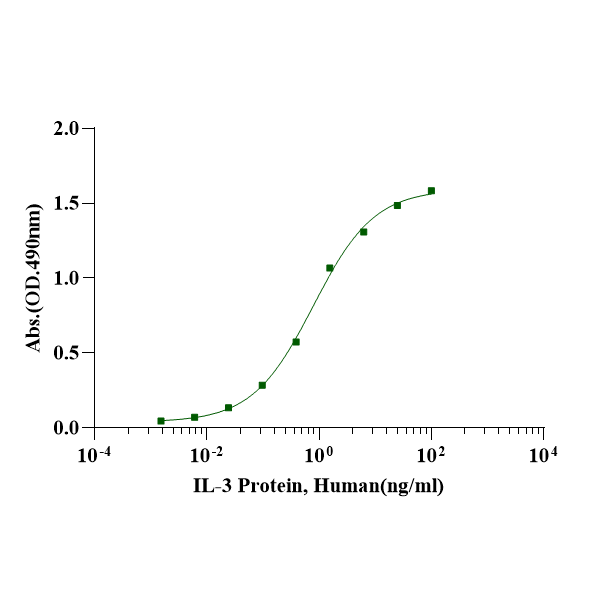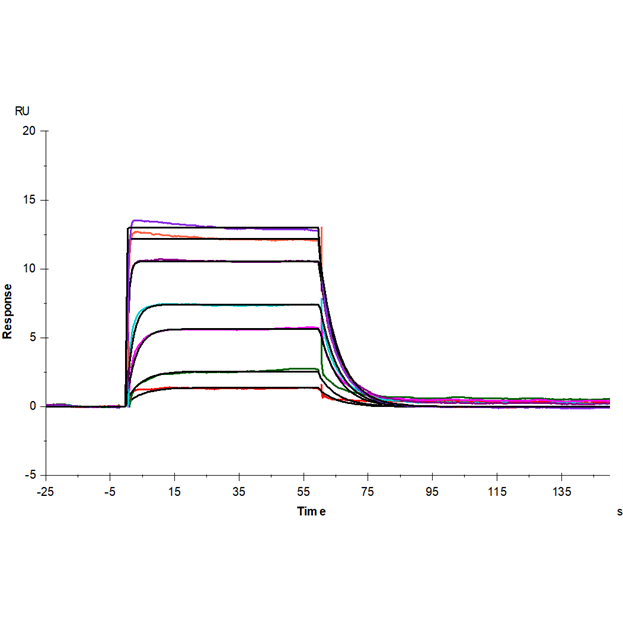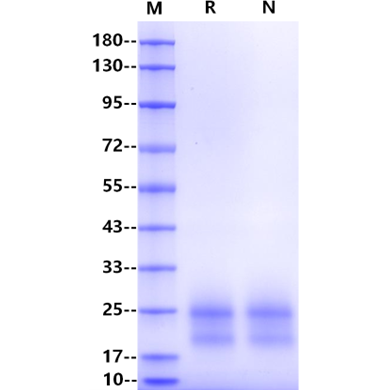EC50 < 1.5ng/ml, measured in a cell proliferation assay using TF-1 cells.
Product Details
Product Details
Product Specification
| Species | Human |
| Synonyms | il-3 |
| Accession | P08700 |
| Amino Acid Sequence | Ala20-Phe152 |
| Expression System | CHO |
| Molecular Weight | 18-27 kDa(Reducing) |
| Purity | >95% by SDS-PAGE |
| Endotoxin | <0.1EU/μg |
| Conjugation | Unconjugated |
| Tag | No Tag |
| Physical Appearance | Lyophilized Powder |
| Storage Buffer | PBS, pH7.4 |
| Reconstitution | Reconstitute at 0.1-1mg/mL according to the size in ultrapure water after rapid centrifugation. |
| Stability & Storage |
· 12 months from date of receipt, lyophilized powder stored at -20 to -80℃. · 3 months, -20 to -80℃ under sterile conditions after reconstitution. · 1 week, 2 to 8℃ under sterile conditions after reconstitution. · Please avoid repeated freeze-thaw cycles. |
Background
IL-3 (also known as multispecific hemopoietin) is naturally produced by both Th1 and Th2 lymphocytes, mast cells, and eosinophils. IL-3 stimulates the production of macrophages, granulocytes, and dendritic cells from bone marrow precursors. The IL-3 is involved in bone marrow hemopoiesis and dendritic cell maturation in anti-viral or antitumor reactivity. IL-3 binds with high affinity to the IL-3 receptor α (IL-3Rα/CD123) and then associates with the βc subunit. IL-3 is the most important growth and activating factor for human and mouse basophils, primary effector cells of allergic disorders. IL-3-activated basophils and mast cells are also involved in different chronic inflammatory disorders, infections, and several types of cancer. IL-3 induces the release of cytokines (i.e., IL-4, IL-13, CXCL8) from human basophils and preincubation of basophils with IL-3 potentiates the release of proinflammatory mediators and cytokines from IgE and C5a-activated basophils. IL-3 synergistically potentiates IL-33-induced mediator release from human basophils. IL-3 plays a pathogenic role in several hematologic cancers and may contribute to autoimmune and cardiac disorders.IL-3Rα/CD123 is also highly expressed on human plasmacytoid DCs, making IL-3 a crucial survival factor for the rare blastic plasmacytoid DC neoplasm (BPDCN). IL-3 supports the proliferation of mouse and human B cells. IL-3 and GM-CSF stimulate the adhesion of human monocytes to endothelial cells. Human endothelial cells are an important target of IL-3. IL-3 activates IL-3 receptor and the proliferation of human endothelial cells and promotes in vivo vessel formation. The proangiogenic activity of IL-3 could contribute to its role in cancer initiation and progression. IL-3 is a growth factor for microglia and modulates mouse and human neurons. Finally, IL-3 regulates bone homeostasis through the modulation of osteoblast differentiation.
Picture
Picture
Bioactivity
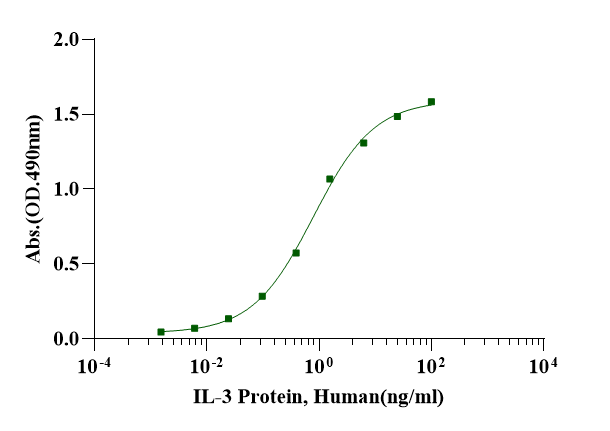
SDS-PAGE
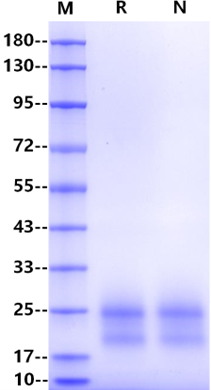
SPR

IL-3 Rα/CD123 Fc Chimera, Human (Cat. No. UA010120) captured on Protein A Biosenor, can bind IL-3, Human (Cat. No. UA040008) with an affinity constant of 0.16 μM as determined in SPR assay.
